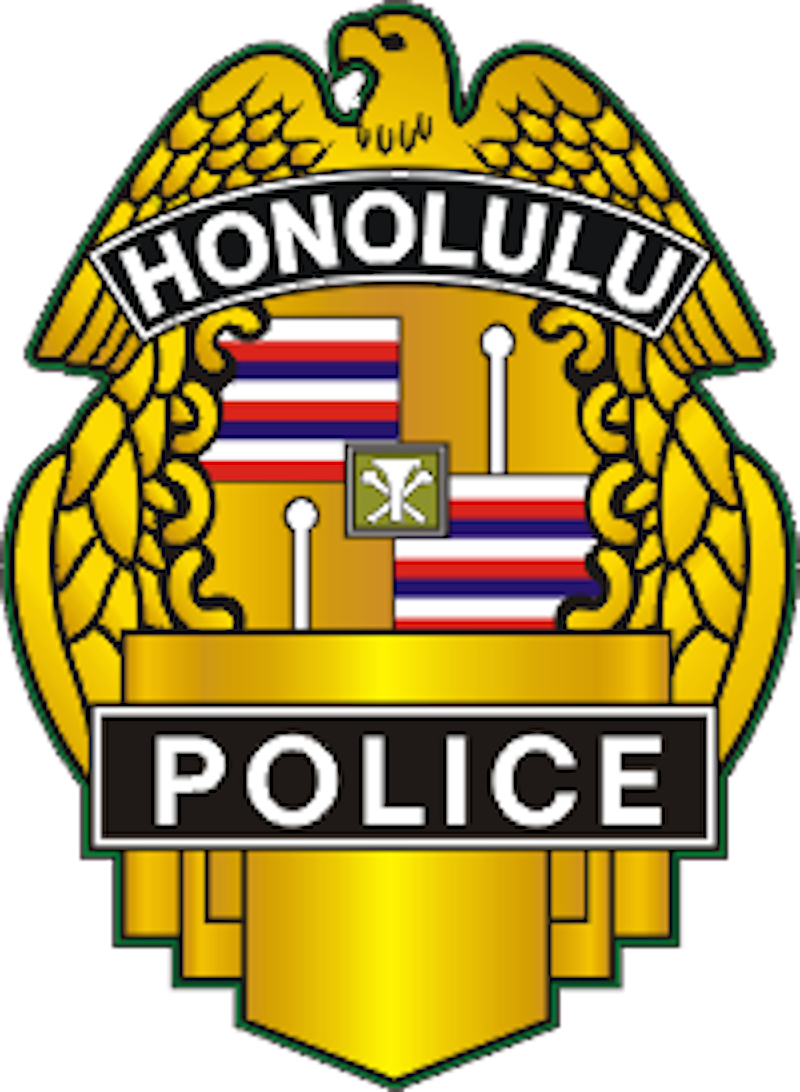The Training Division records and maintains a
master list of department-authorized training
received by departmental personnel.
DEFINITIONS
A. Conference: Sessions attended by personnel
of the Honolulu Police Department (HPD) where the
exchange of ideas or the enhancement of credentials
or qualifications takes place.
B. External training: Training that is sponsored
or conducted by sources outside the department and held
away from departmental facilities (including those held
off island) and is received by departmental personnel
to enhance their credentials/qualifications.
C. Internal training: Training that is conducted by
departmental trainers or guest instructors in any departmental
facility and is designed to enhance the credentials or
qualifications of departmental personnel.
D. Roll call training: Training given by divisional
personnel at the beginning of a shift to disseminate new
information and review existing policies and procedures.
TRAINING DIVISION RESPONSIBILITIES
A. The Training Division shall:
1. Coordinate, prioritize, and schedule approved
departmental training administered by the division; and
2. Maintain a master plan for training sessions to ensure that:
a. Training sessions are efficiently scheduled;
b. Duplication of effort does not occur; and
c. Requests for personnel to attend training
sessions do not have an adverse impact on any element.
B. Twelve-Month Training Schedule
1. Each month, the Training Division shall
produce a schedule that depicts a 12-month
projection of training that should occur at the training academy.
2. Amendments to the previous schedules shall be
reflected on the updated schedules.
3. The Training Division shall ensure that this
schedule is made available to all departmental personnel
on the department’s intranet.
C. Recruit training, recall training, mandated
training, liability-related training, and training
needed to reinforce/improve current skills and
knowledge shall be given priority.
ELEMENT RESPONSIBILITY
A. A training liaison shall be appointed in each division level element.
1. The training liaison shall be the second in
command of the element or a designee.
2. All communications related to training shall
be routed to and/or via the training liaison.
3. The training liaison shall be responsible
for all training concerns within the element/
division and will ensure that regular and
appropriate training occurs relative to the
command’s function and operations.
4. Related tasks may be delegated to others in the element.
B. Whenever an element wishes to schedule any
department-authorized training (internal, external,
or off-island), a Request to Schedule Training,
HPD-391 form, shall be submitted to the Training Division.
1. All requests shall be submitted as soon as
possible but no later than the first week of the
month in order to be included in the following month’s schedule.
2. Requests that are not submitted at
least one month in advance of the scheduled training
may be considered on a case-by-case basis.
3. The element shall be responsible
for all of the coordination, scheduling, and
dissemination of information for the training.
EXCEPTION TO SCHEDULING REQUIREMENT
Roll call training does not need to be scheduled
by the Training Division. Elements may schedule
this type of training independently.
INTERNAL TRAINING
The coordinator or the training liaison of any
element conducting any training session using
their own instructor(s) (either element personnel
or a guest instructor) shall:
A. Submit the Request to Schedule Training,
HPD 391 form, to the Training Division;
B. One week prior to the scheduled block of
instruction, lesson plans shall be submitted to
the Training Division with all pertinent documents
including, but not limited to, digital presentations
(e.g., PowerPoint), videos, pictures, handouts,
brochures, tests, answer keys, etc.
1. No lesson plan shall be used without prior
review and approval from the Training Division.
2. If using a lesson plan that has already been
submitted and approved by the Training Division in
the past, instructors shall indicate that they have
reviewed and approved the lesson plan prior to
conducting the training session; and
C. All sworn and civilian police personnel
must attend and complete the HPD’s Basic Instructor
Development Course prior to conducting a training session.
EXTERNAL TRAINING
A. As soon as arrangements to attend an external
training session are finalized, the element involved
shall submit the Request to Schedule Training,
HPD-391 form, to the Training Division.
1. The Training Division shall be responsible for
tracking and recording this type of training for the department.
2. Personnel attending external training sessions
do not satisfy a command’s obligation to send a set
percentage or number of personnel to internally scheduled
police department training.
B. Within five days of returning to work after
attending any external training session, the ranking
person who attended shall submit the After-Action
Report for Completed Training, HPD-400 form, to the
Training Division through his or her training liaison.
Exception: A report shall not be required for
attendance at Department of Human Resources classes.
C. Within five days of returning to work after
attending any external training session, individual
attendees shall submit his or her name and identification
number with a copy of a certificate of completion or other
documentation of completed training to the Training Division
for inclusion in the employee’s training record.
TRAINING RESOURCES
A. The department encourages the development of
training programs using external resources from the
public and private sector, such as the:
1. Institute of Police Technology and Management;
2. Western Community Policing Institute; and
3. Federal Bureau of Investigation Academy.
B. Personnel who receive external training are
reminded that information received must be used in
accordance with laws and departmental directives.
COOPERATION WITH OTHER AGENCIES
To increase effectiveness, improve coordination,
and promote a better understanding among criminal
justice agencies, the Training Division commander
or designee should:
A. Maintain contact with other agencies within
the local criminal justice system to exchange ideas
and promote mutual training between the agencies;
B. Schedule the use of necessary departmental
facilities, equipment, and instructors to assist
other agencies when requested and as resources permit;
C. Assist other agencies with their on-site training as requested; and
D. Offer departmental training to other agencies when openings occur.
